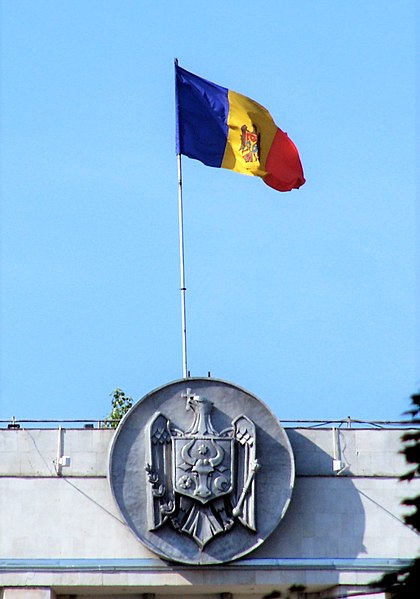
Today, at the EU-Moldova Association Council in Brussels, the European Union and the Republic of Moldova have agreed to further strengthen cooperation in a number of key areas in line with
Moldova's commitments under the EU-Moldova Association Agreement.
Moving forward with Association Agreement implementation on the EU path
Today's 7th EU-Moldova Association Council reaffirmed the strong partnership and commitment to enhancing the political association and deepening economic integration of Moldova with the EU, in the context of Moldova's candidate country status and in the framework of the Association Agreement and its Deep and Comprehensive Free Trade Area (DCFTA).
The Association Council was chaired by the Prime Minister of the Republic of Moldova, Natalia Gavriliţa. The High Representative Josep Borrell led the EU delegation. The Commissioner for Neighbourhood and Enlargement, Olivér Várhelyi, also participated.
The EU and Moldova also reconfirmed their strong partnership through a series of concrete actions. This was confirmed in the Joint Statement published after the meeting.
Participants discussed the implementation of reforms by Moldova under the EU-Moldova Association Agreement over the past year, as outlined in the Association Implementation Report on Moldova. In 2022, despite the deep impact of the consequences of Russia's military aggression against Ukraine, Moldova made progress in several key areas such as justice and fight against corruption. In this context, the EU has considerably stepped up its support for Moldova's overall resilience.
The Association Implementation Report tracks in a dynamic way the progress on the implementation of the Association Agreement between the EU and Moldova on an annual basis, in the context of political and economic realities. The 2022 report is the last of this kind, as Moldova will feature in the Enlargement package from autumn 2023 onwards. It needs to be distinguished from the Analytical Report published by the European Commission last week. The Analytical Report completes the European Commission's Opinion on Moldova's application for membership of the EU and assesses the country's overall capacity to uphold the obligations of membership across the full body of EU law.
Funding support under EU4Health programme
Today, the Commission and the Government of the Republic of Moldova have signed an agreement associating Moldova to the EU4Health programme. This agreement will give Moldova access to EU funding in the area of health. This will help the Moldovan health system better respond to immediate needs and contribute to long-term post-COVID-19 recovery. The agreement was signed by Margaritis Schinas, Vice-President for Promoting European Way of Life, and Natalia Gavriliţa, Prime Minister of Moldova.
The Moldovan health authorities will be able to participate in joint actions that are dedicated to health authorities in specific areas, such as mental health, the European Health Data Space, global health, non-communicable diseases, and the EU network of Comprehensive Cancer Centres. Furthermore, public or private health sector actors will be able to apply for funding to support actions such as fighting cross-border health threats, prevention of chronic respiratory diseases, improving mental health for vulnerable groups including displaced people and improving health systems and healthcare services.
Moldova can benefit from funding on equal footing with entities from EU Member States, as well as other associated countries, namely Norway, Iceland and Ukraine. The agreement will apply retroactively, as of 1 January 2023.
New agreements on closer cooperation in customs and taxation
The Commission today signed two agreements between the EU and Moldova which cements Moldova's participation in the EU's Customsand Fiscalis programmes. This means that Moldova will be able to take part in the activities of both programmes alongside EU Member States and other participating countries. The agreements were signed by Paolo Gentiloni, Commissioner for Economy, and Natalia Gravrilita, Prime Minister of Moldova.
Moldova's participation in Customs and Fiscalis programmes is an important step in further strengthening operational cooperation in the areas of customs and taxation and is emblematic of the mutual commitment towards closer ties. It will allow Moldovan customs and tax authorities to participate in various collaborative activities and to benefit from a wide-ranging training portfolio. All these new cooperation avenues are of particular importance considering Moldova's status of candidate country to the EU.
Today's signatures follow last year's agreement between the EU and Republic of Moldova to mutually recognise each other's Authorised Economic Operators (AEOs) programmes, bringing together traders who meet certain criteria and who can therefore benefit from simplified customs arrangements. Photo by Dave Proffer, Wikimedia commons.



































